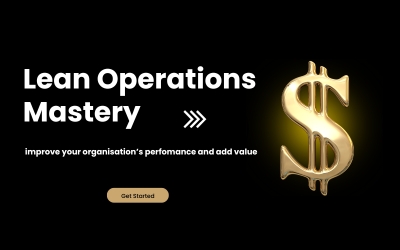Course description
Course Description: Corporate governance lies at the heart of responsible and sustainable business practices. In the Corporate Governance Fundamentals course, we embark on an in-depth exploration of the critical principles, strategies, and dynamics that shape the governance of modern organizations. Whether you are a board member, an executive, an investor, or a governance professional, this course provides the essential knowledge and skills to navigate the intricate world of corporate governance with confidence and effectiveness.
Course Highlights:
Module 1: Introduction to Corporate Governance
- Understand the foundational concepts of corporate governance and its significance in the business world.
- Explore the roles of key stakeholders and the ethical framework that underpins governance practices.
- Learn about the corporate governance framework, including laws, regulations, and market forces.
Module 2: Board of Directors and Board Committees
- Dive deep into the composition and structure of the board of directors.
- Discover the responsibilities, duties, and best practices of directors.
- Explore the vital role of board committees in specialized oversight and decision-making.
Module 3: Shareholders and Shareholder Activism
- Examine shareholder rights and responsibilities.
- Learn how shareholder activism influences corporate governance decisions.
- Understand how to engage with shareholders effectively.
Module 4: Executive Compensation and Performance
- Explore executive compensation principles and their alignment with company performance.
- Study performance metrics and incentive structures to drive long-term value creation.
- Gain insights into best practices in executive compensation design.
Module 5: Risk Management and Corporate Responsibility
- Delve into risk governance and its critical role in protecting a company's interests.
- Explore corporate social responsibility (CSR) and sustainability as integral components of governance.
- Understand the principles of ESG (Environmental, Social, and Governance) and their impact on decision-making.
Module 6: Corporate Governance in International Context
- Compare global corporate governance variations and best practices.
- Analyze the challenges multinational corporations face in diverse regulatory environments.
- Gain a holistic understanding of international governance standards and frameworks.
Module 7: Case Studies and Practical Applications
- Analyze real-world corporate governance failures and extract valuable lessons.
- Explore best practices in corporate governance across various industries and regions.
- Develop practical skills for addressing governance challenges.
Module 8: Future Trends and Emerging Issues
- Stay informed about evolving trends in corporate governance.
- Understand the impact of regulatory changes and reforms on governance practices.
- Explore the future of governance, including ESG integration, technology, and stakeholder engagement.
Module 9: Course Conclusion and Final Assessment
- Recap the key concepts and takeaways from the course.
- Assess your understanding through a final assessment.
- Reflect on your learning journey and its relevance to your professional role.
Module 10: Course Resources and Additional Reading
- Access a curated list of recommended reading materials and online resources for further exploration.
- Stay updated on the latest developments and research in corporate governance.
By the end of this course, you will possess a comprehensive understanding of corporate governance, enabling you to contribute effectively to ethical decision-making, risk management, stakeholder engagement, and sustainable business practices within your organization. Join us on this educational journey to master the fundamentals of corporate governance and shape a brighter future for your organization and the wider business community.



















